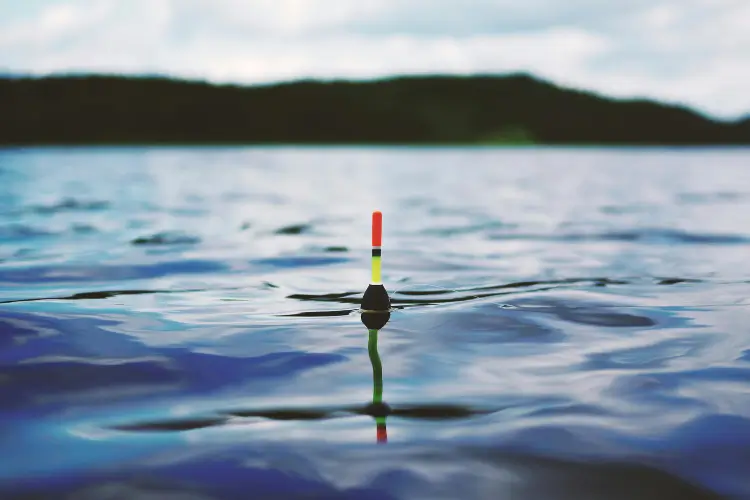Introduce readers to the concept of structured water, a term referring to water that’s believed to be more organized at a molecular level. Many people who advocate for structured water suggest that this reorganization enhances the quality of the water, offering benefits such as improved hydration and better absorption by plants and the human body. The concept of “structured water” has garnered attention, though it remains a topic of scientific discussion. To gain a broader understanding of the theories and research surrounding this subject, resources that explore the science behind structured water can provide valuable information. It’s important to approach this topic with a critical eye, as scientific consensus is still developing.
In today’s market, there are a variety of structured water devices to choose from, tailored to fit different lifestyles and needs. Whether you’re a homeowner looking for a permanent installation or a renter who needs a portable solution, there’s a device out there for you. This article will explore the various types of structured water devices, compare system options, and guide you through the essential considerations for selecting the right device for your lifestyle.
What is a Structured Water Device?
Structured water devices are tools designed to alter the molecular arrangement of water to make it “structured.” These devices aim to mimic the natural water structuring processes that occur in nature, like the tumbling of mountain streams. The primary functions of these devices can include:
• Reorganizing water molecules: Believed to lead to better hydration and absorption.
• Enhancing water quality organically: Without chemicals or additives.
The concept behind water structuring is that restructured water may offer unique benefits not present in regular water. These benefits may include increased energy, improved nutrient absorption, and enhanced overall well-being.
In the following sections, we will detail the types of structured water devices, their functional differences, and the circumstances under which they might best serve you. By the end, you’ll be equipped with the necessary knowledge to choose a structured water device that suits your needs perfectly.
Types of Structured Water Devices
When considering a structured water device for your home or lifestyle, understanding the different types available is key. Here’s a look at the main kinds of devices and what sets them apart:
• Structured Water Units
These are portable devices that require minimal installation. They are ideal for people who move frequently or want a simple solution to structure their water. They can be easily attached to faucets or hoses for convenient access to structured water wherever needed.
• Structured Water Systems
These systems are more permanent fixtures, designed for homeowners wanting a more comprehensive solution. Structured water systems are installed into the main water supply lines, treating water throughout the entire home. While they are more complex to install, they offer the advantage of providing structured water at every tap.
Key Differences:
• Portability: Units are portable, while systems require installation.
• Cost: Units are usually less expensive than systems, but systems offer whole-house solutions.
• Maintenance: Units tend to have low maintenance needs, but systems may require occasional professional servicing.
When choosing between these options, think about your living situation and needs. If you own your home, a structured water system may be an ideal investment. Renters or those seeking flexibility might prefer a structured water unit.
Structured Water Unit vs. Structured Water System
Deciding between a structured water unit and a structured water system often comes down to specific needs and living conditions. Here’s a comparison to help make the decision clearer:
• Structured Water Units
o Advantages:
Portable
No professional installation needed
Suitable for renters and frequent movers
o Limitations:
Only structures water at the point of use
May not offer enough flow capacity for large households
• Structured Water Systems
o Benefits:
Provides structured water throughout the home
Requires only one installation for entire-home water treatment
o Drawbacks:
Higher upfront cost and possible installation expenses
Less portable, more suitable for homeowners
Scenarios for Use:
• Renters: A structured water unit is perfect due to its portability and easy installation.
• Homeowners with Large Families: A structured water system delivers consistent quality at every outlet in the home.
Understanding these differences can guide you in selecting the right device for your lifestyle.
Natural Water Filtration System
A natural water filtration system is a method of refining water without adding chemicals. This system works by using a natural action process, which mimics how nature purifies water through ecosystems like rivers and streams.
• Natural Action Process: This involves water moving in a specific way that can enhance its quality. The process breaks down water clusters, making it easier for cells to absorb, which may improve hydration.
• Chemical-Free Purification: Unlike traditional filters that might use chemicals to clean water, a natural water filtration system relies on physical processes. This reduces the risk of introducing toxins.
Benefits of Natural Action Water
Using a natural action water device can offer several benefits, enhancing both personal and environmental well-being.
• Potential Health Advantages: Drinking naturally structured water may result in better hydration and improved cell function. The water can more readily pass through cell membranes, enhancing nutrient delivery.
• Plant Growth Enhancement: Gardens and farms that use structured water devices report stronger plant growth. This is potentially due to enhanced mineral absorption and soil health.
• Improved Hydration: Structured water is often believed to have a more stable molecular structure, making it easier for the body to absorb. This can lead to better hydration and energy levels.
Considering these aspects, using a natural water filter could be highly beneficial for those looking to improve their water quality without adding chemicals into their home or environment. It is important to research further and choose a system that aligns with your personal and household needs.
Key Considerations When Choosing a Structured Water Device or Natural Water Filter
Choosing the right water device, whether structured or a natural filter, involves several important factors. Here’s what to keep in mind:
• Budget Constraints:
o Water devices and filters vary in price. It’s essential to set a budget and find a device that balances cost with functionality.
o Consider both upfront costs and potential long-term savings on maintenance.
• Installation Requirements and Feasibility:
o Determine whether you need a portable device or a more permanent installation.
o Check if your living space can accommodate the device, especially for larger structured water systems.
o Evaluate the ease or complexity of installation; some devices may require professional assistance.
• Household Water Usage and Size:
o Consider the amount of water your household consumes as this can affect device performance and choice.
o Larger households may benefit from structured water systems, while smaller units can suffice for individuals or couples.
• Certifications and Evaluations:
o Look for devices that have been certified by relevant authorities or organizations. This ensures reliability and safety.
o Examine customer reviews and expert evaluations to understand real-world performance and satisfaction.
• Lifestyle and Convenience:
o Assess how often you’ll use the filter and in what capacity.
o For natural filters, evaluate if a portable option suits your travel habits or if a permanent installation is more appropriate.
• Research and Customer Reviews:
o Conduct thorough research online, using multiple sources to gather unbiased information.
o Read customer reviews from reliable platforms to gauge satisfaction and any potential issues with the device.
• Consult Professionals:
o Reach out to water specialists or consultants who can offer personalized advice based on your needs.
o Some companies provide consultation services prior to purchase, which can ensure you make an informed decision.
By considering these factors, you can better identify which structured water device or natural water filter will fit your lifestyle and needs.




